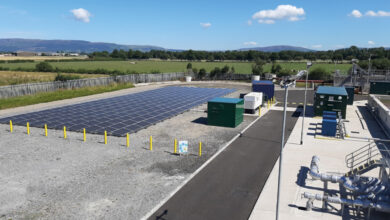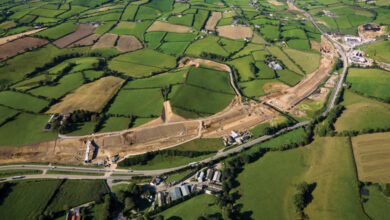Infrastructure investment – time for a new approach
 KPMG’s Ashleen Feeney urges the Northern Ireland Executive to adopt a new approach to assessing and prioritising infrastructure investment.
KPMG’s Ashleen Feeney urges the Northern Ireland Executive to adopt a new approach to assessing and prioritising infrastructure investment.
By now, it should be clear to everyone that investment into infrastructure stimulates economic growth. Infrastructure systems and economies are intricately intertwined; infrastructure increases connectivity, facilitates productivity, creates jobs and stimulates trade – all key enablers of economic growth in Northern Ireland. Equally, economic growth can be a key enabler of increased investment and funding for infrastructure; economies with stronger growth prospects tend to attract more investment for infrastructure than those with poor growth prospects.
If everyone agrees that investment into infrastructure drives economic growth, why are decisions being made without a view on the true economic value that those investments deliver? And, without these considerations, how is the new Executive going to effectively prioritise infrastructure projects in Northern Ireland, to ensure they are putting the right money in the right places to achieve the economic and social outcomes anticipated in the new Programme for Government?
Current infrastructure appraisal and prioritisation methodologies are frequently nowhere near sophisticated enough to allow Governments to make truly informed decisions about their investments. It is time to rethink how we appraise and prioritise infrastructure, and forge better links between decision making, growth and thus the revenues that ultimately pay for what is built.
Northern Ireland’s infrastructure needs are increasing, and the Executive’s ability to fund infrastructure is falling. The Executive must recognise the sense in accelerating the delivery of those investments that will drive economic growth – the integrated Belfast Transport Hub in Belfast, the North-South interconnector and the A6 and A5 strategic roads projects.
Few governments are able to properly assess the actual economic value that their investments deliver. In part, this is because current infrastructure appraisal and priortisation methodologies take a narrow view of value. In some markets, appraisals are simply based on a mix of feasibility studies and economic cost/benefit analysis. Often the appraisal is a way for project sponsors to get what they want rather than help decision-makers understand the optimal combination of projects meriting investment when financial resources are constrained. It is vital to have a complete picture of the project’s impact on the ‘real economy’ (growth and jobs), land values and tax revenues, and what this means for overall project affordability for the taxpayer.
Another challenge is that most governments, including the Northern Ireland Executive, tend to manage their infrastructure investments in departmental silos (or in the case of strategically important projects) on a project-by-project basis. This often results in insufficient awareness of the relative value that each project delivers to the overall economic objectives, which, in turn, makes it very difficult to properly balance investments to achieve the best returns. This project-by-project view of life also risks ignoring important interactions between projects.
Now is time for the new Northern Ireland Executive to focus on evolving its infrastructure appraisal and prioritisation processes to reflect the real economic value and long-term affordability of Northern Ireland’s infrastructure needs and give more focus to programmes rather than projects.
The new Executive must find a way to explore and measure the broader basket of benefits that infrastructure investment can deliver. The calculation for economic benefit should include not only traditional metrics such as ‘time saved’ or ‘revenues generated’ but also aspects such as land value changes. This may mean running real economy and programme based appraisals in parallel to more conventional, project specific approaches.
New approaches are being used by cities at the forefront of the UK City Devolution agenda, to design programmes that seek to maximise growth, but do so subject to minimum environmental and social outcomes, with the mix of projects underpinning the programme being adjusted until the desired balance is achieved.
Now is the time to embrace change and encourage more innovative approaches to infrastructure investment appraisal and prioritisation. It won’t be easy – data may not be available and there may be opposition from stakeholders with a vested interest in maintaining the status quo. However for the Executive to achieve the best returns on infrastructure investment, meet policy objectives and achieve better affordability for infrastructure, they must start to further evolve their approaches and methodologies. Given the current ‘funding gap’ for infrastructure investment in Northern Ireland, the time to start is right now.
Ashleen Feeney, Director, KPMG Deal Advisory
Tel: 028 9089 3759
Email: ashleen.feeney@kpmg.ie





